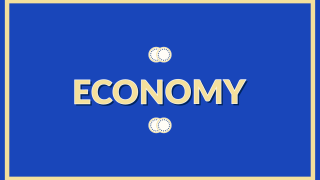The ideal of the Euro constituted an enormous challenge for many countries that have nothing to do with the European Union. After years of economic crises, political ups and downs, and inflation, many nations, above all those of Latin America, regarded with envy the golden opportunity that appeared to present itself to countries such as Greece and Italy: that of leaping forward in their development process without having to pay the costs. The Euro appeared to make the miracle of having German interest rates possible under the Mediterranean sun. Today we know that mirages are really costly: development does not come about by chance; rather, it requires great governmental capacity and the disposition to act. The same can be said for the adjustment politics currently in the palaestra of the discussion.
The Greek drama comprises many causes and components but a very evident one is that the strategy that it has adopted or, rather, that the circumstances and their neighbors have imposed upon them, do not tally with its internal reality, above all its capacity to govern itself. Were the Euro not to exist, Greece would be undergoing a very distinct situation, perhaps more similar to those characterizing many Latin-American nations at their times of crisis: a brutal fall that rendered fiscal adjustment, more than voluntary, inevitable. The Euro made the adjustment appear to be voluntary and few took it seriously. The reality is that, with the Euro or without this common currency, there are no short-cuts to prosperity.
The Mexican crises were very distinct: they ensued under similar circumstances (budget deficit, disequilibrium in the balance of payments) but their dynamic was entirely different. In the absence of dollars, the cost of everything imported, including the interests on the debt, went sky high and this led to the collapse of the economy. The dilemma was very simple: the government would organize the adjustment or this would take place under its own steam. A government with capacity of action can establish priorities and solicitude for certain programs; when crisis dominates the government, there is no priority at all: everything collapses. In 1995, the Mexican Government agreed, with the International Monetary Fund, to a zero deficit in the first year, that is, a brutal adjustment. Thanks to the Euro, the case of Greece has been very distinct, creating a political dynamic that makes it seem that the adjustment component of the scenario is something optional. Its commitment to the European Union and to the IMF includes arriving at a 10% deficit the first year: it might seem that Greece got off lightly because it can take it easy.
Each of the Mexican crises implied a brutal fall in economic activity (in 1995, contraction represented 8% of the GDP), but in a few months, the panorama began to improve: once the adjustment was carried out, exports began to grow and economic activity recovered swiftly. But the most important thing was not the economy’s performance, but rather, the evolution of the population’s expectations. Critics of the adjustment denounced the firings, the spending cuts, and the salary contraction, but within the lapse of a few months, the population proceeded from depression to a growing optimism. In contrast, the Greeks, whose adjustment is draconian and at the same time interminable, have now been in the throes of the process for a year and have no reason to think that things will improve in the foreseeable future. Paradoxically, the existence of the Euro, which in the good times offered so many advantages, is now a great liability.
At its time, on adopting the dollar as the reference currency (“convertibility”), Argentina attempted something similar to the Euro but this behaved exactly the same as that of Greece: it led to a disorderly economy and one without control, until reality caught up with it and the country found itself in a profound crisis from which it has yet to emerge. In Mexico and in other Latin-American nations, there were many debates on the adoption of the dollar as the legal tender and a Canadian proposed the idea of creating the “Amero” as the equivalent of the Euro on the American Continent. In retrospect, it appears that cautious government officials were right.
A country’s currency cannot be separated from its capacity to govern: it concerns, pardon the pun, two sides of the same coin. It is not coincidence that Ireland and, in second place, Spain, have recognized that there is no easy way out and, with great governing capacity, have weathered the adjustment with staidness and a sense of inevitability. On their part, now Greece has had to adopt German criteria for macroeconomic aggregates without the real governmental capacity that this entails in everything else.
The true dilemma resides in Germany. Eight years ago, the Germans and the French overran the deficits established by the Maastricht Treaty but no one dared to call them on it. Some have argued that this fact made countries currently in hot water feel that limits were irrelevant; thus, while the Germans devoted themselves to correcting their fiscal situation and raising their productivity levels in dramatic fashion, those to the South continued to enjoy life. Today it is these very Germans who find themselves up against the difficult tessitura of absorbing the losses of their profligate bedfellows in order to continue to possess the advantages of the Euro (and the ability to export with a not-too-expensive currency) or to abandon to Euro and assume the costs of a currency so hard that they would cease to be competitive in export markers. Highly priced, the fiscal virtues of the Germans…
The simple fact is that the Europeans have no easy outs, that they are presently confronting a complex banking and fiscal situation and, whatever the way out might be, it will require definitions that will be most disagreeable in Germany, where the electorate has neither the patience nor the tolerance for the easy life of the Greeks and the Italians. Instead of being able to do what would be desirable, the Germans are now faced with the need to act in a way that Galbraith once characterized as: “Politics is not the art of the possible. It consists of choosing between the disastrous and the unpalatable”. That’s what awaits the Germans.
At the end of the day, everything depends on the governmental capacity that a country has and this includes fiscal and monetary responsibility. Earl Long, a somewhat folkloric U.S. governor, once affirmed that, “someday Louisiana is gonna get good government. And they ain’t gonna like it”. Greece appears to be undergoing a like tessitura. Its tragedy is that there is no light at the end of the tunnel, a circumstance not true in countries like Ireland or Spain that, however formidable the road immediately ahead, the future is no less promising. The experts say that the real key factor is Italy because, different from Greece, its collapse could take all the others with it. In the words of the Chinese curse, may you live in interesting times.
Euro Dilemmas






Comments